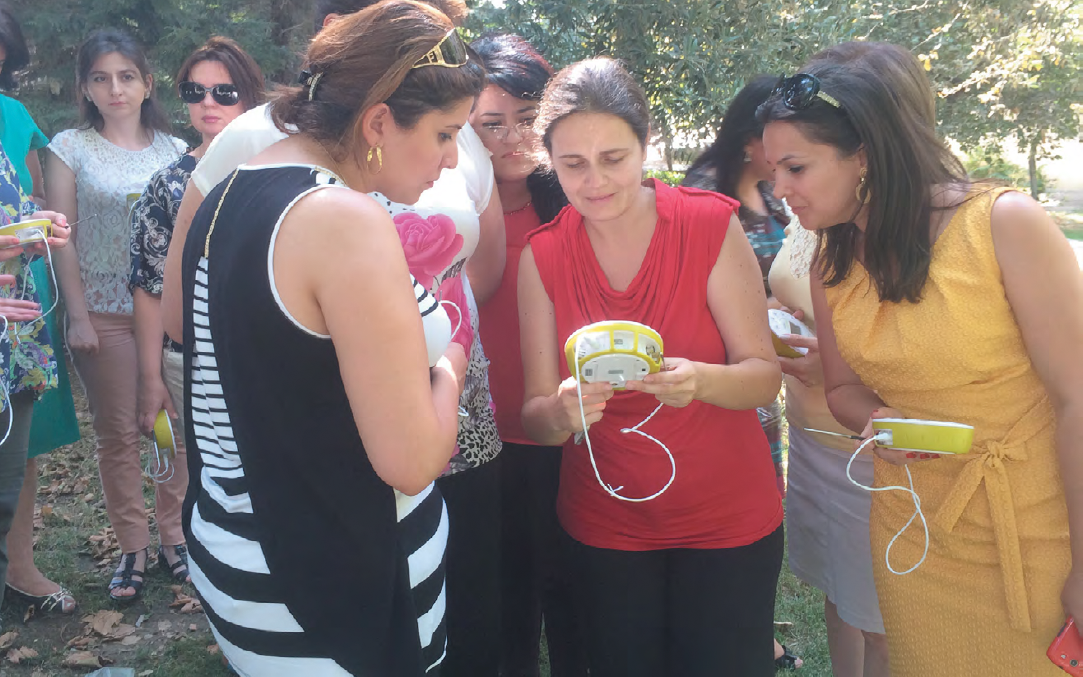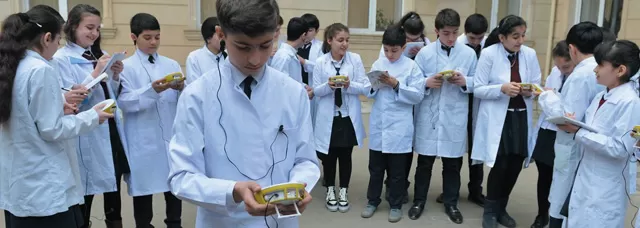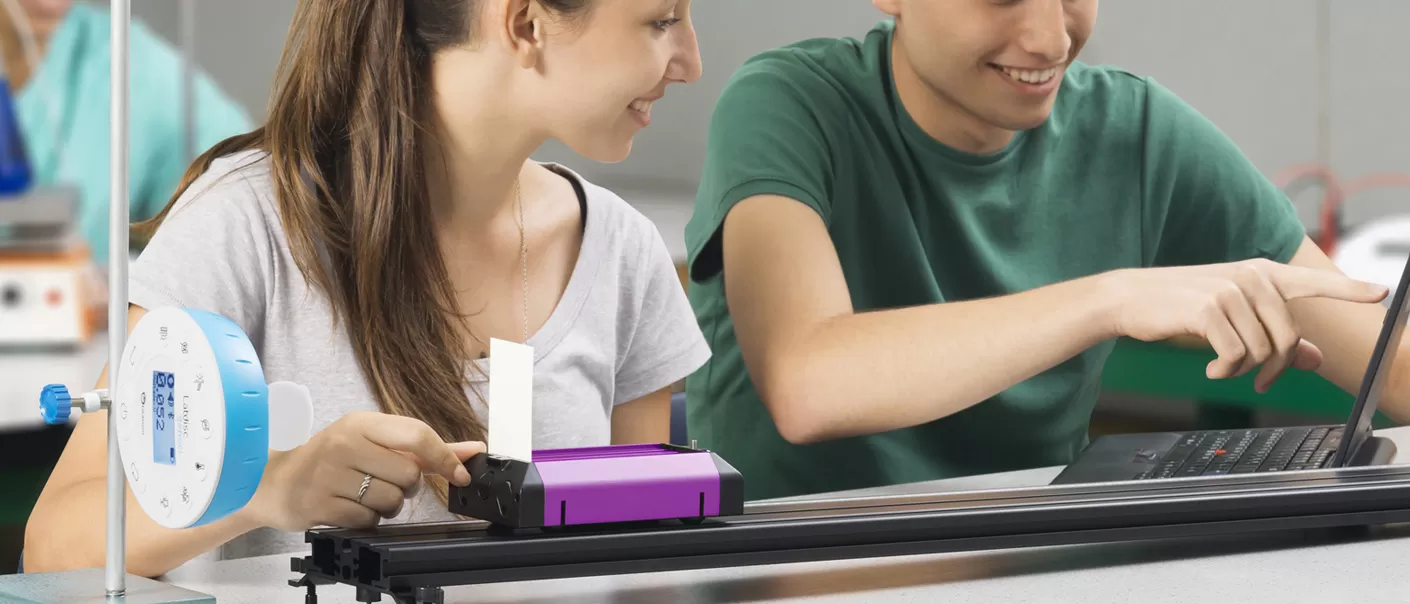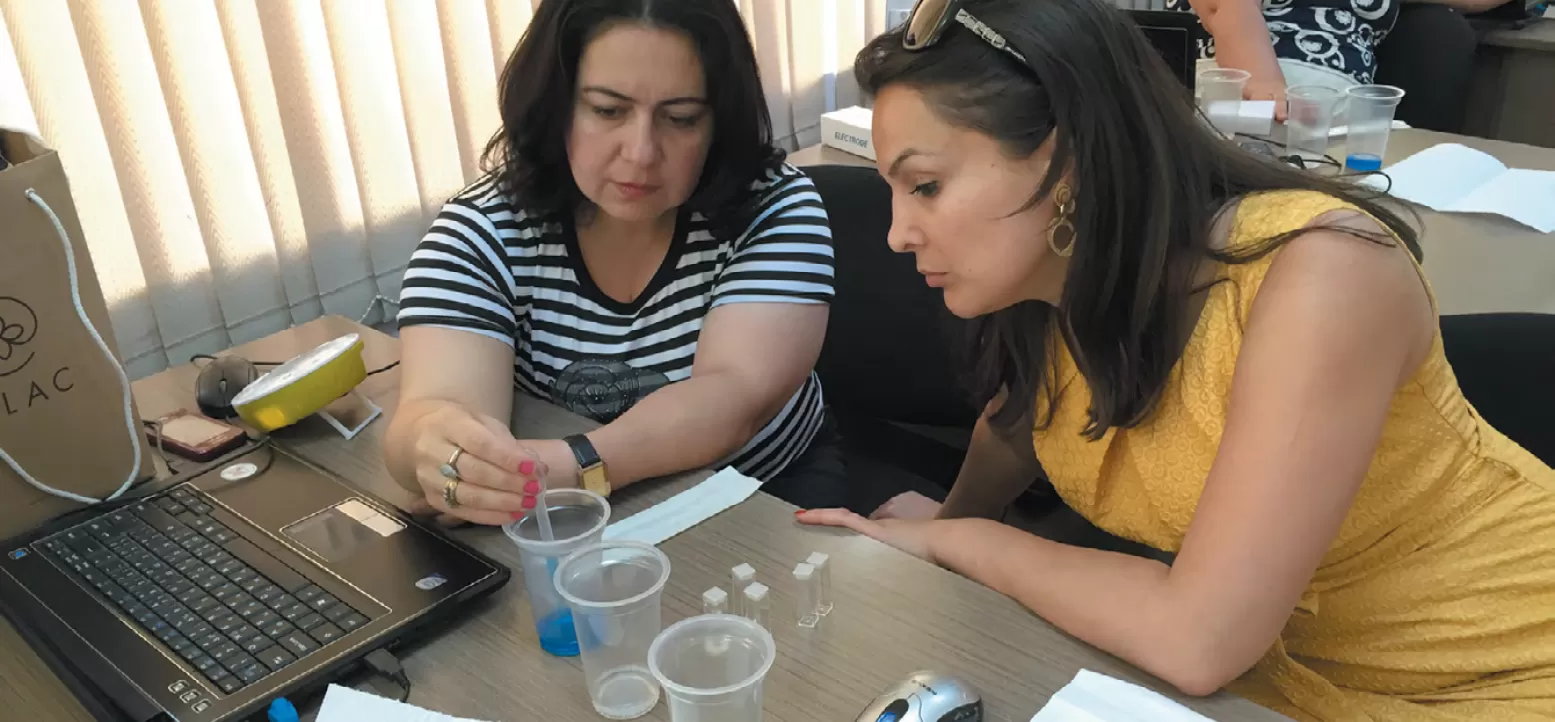Azeri Ministry of Education, Azerbaijan
Nurturing the Next Generation: Scientists and Engineers
With an economy dependent on the oil industry, Azerbaijan is looking to diversify. Focused on nurturing the next generation of STEM-based professions, the Ministry of Education wants to equip students with the necessary knowledge and skill set to take the country forward. The wealth of research and practice around the world shows that the starting point is attracting young students to science and math, improving their understanding and test scores, and as a result, increasing the number of high school students majoring in science. This channels more students into STEM-based subjects at the university level, which means more Azerbaijani graduates flourishing in the STEM careers of the future.
Installation Snapshot:
Labdisc Portable STEM Lab
The Labdisc Checks Every Box
With a future STEM workforce in mind, the Ministry of Education decided on the Labdisc. This hands-on solution complements their existing theory-based science syllabus with practical experiments for biology, chemistry, and physics topics. The digital, compact, and portable laboratory is easy to set up and use by both students and teachers. For the first time since receiving independence, Azerbaijan purchased equipment of this standard for general education in schools.
The Ministry of Education, in accordance with the State Education Development Strategy, announced the start of the exciting new pilot for Azerbaijani education. They said, “The Labdisc data recording device operates as a complete laboratory with 15 built-in wireless sensors. The device is fully integrated with all major school technology and equipment through wireless communication. By connecting to computers, netbooks, interactive boards, and tablets, the system provides high-performance wireless access to the laboratory. This provides an opportunity for teachers and students to interact during the lesson, and at the same time save on technological costs.”
“Education is the future of the nation! Special thanks to all the teachers who collaborated in Edumedia-Azerbaijan.”
The Ministry of Education, in accordance with the State Education Development Strategy, announced the start of the exciting new pilot for Azerbaijani education. They said, “The Labdisc data recording device operates as a complete laboratory with 15 built-in wireless sensors. The device is fully integrated with all major school technology and equipment through wireless communication. By connecting to computers, netbooks, interactive boards, and tablets, the system provides high-performance wireless access to the laboratory. This provides an opportunity for teachers and students to interact during the lesson, and at the same time save on technological costs.”
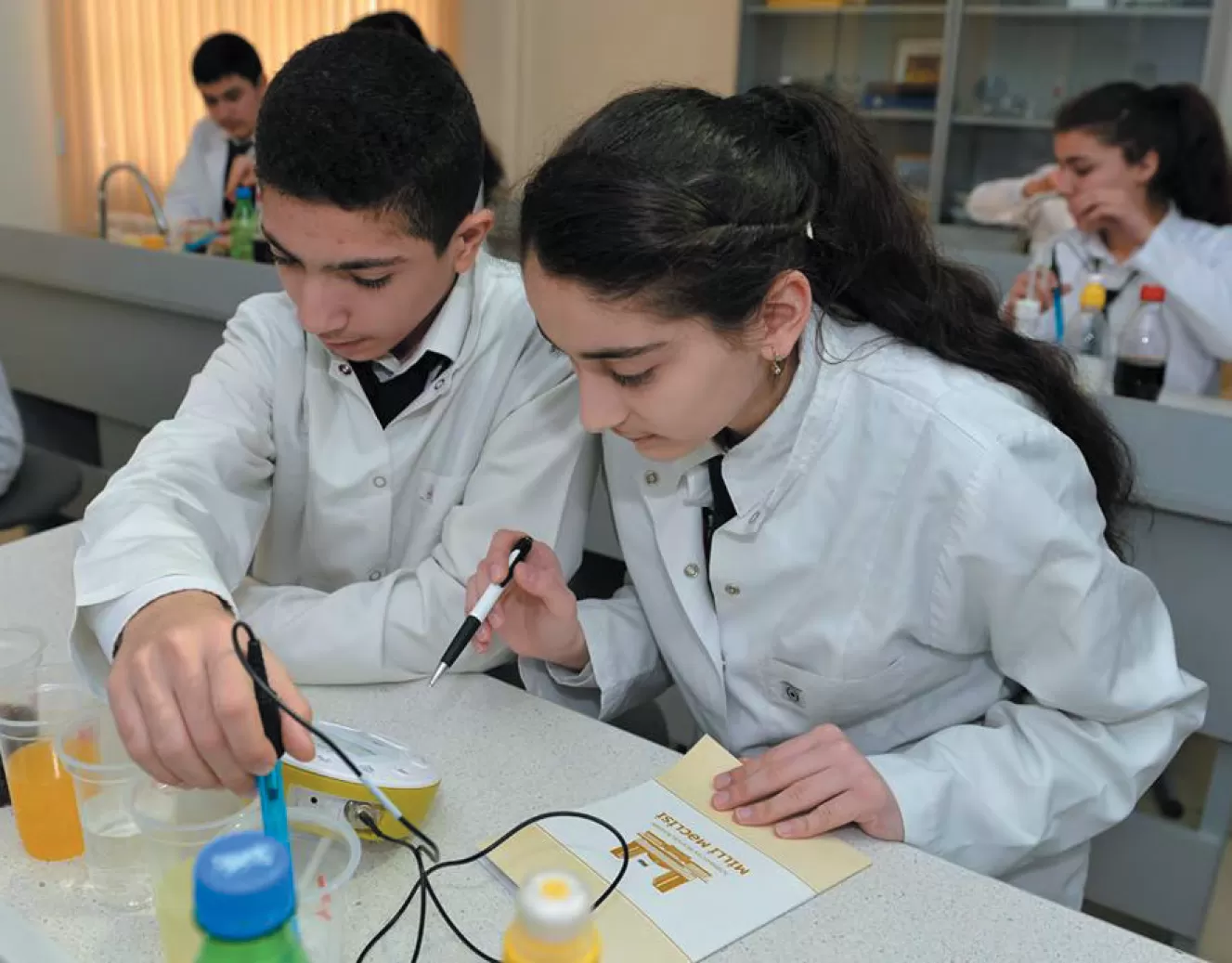
The Pilot takes off
The pilot was launched across 50 high schools throughout Baku for a period of 12 months. Every school received two Labdisc science carts (each containing 16 Labdisc for physics as well as 16for biology and chemistry). All Labdisc software and experiment books were translated to Azerbaijani, and experiment guides were correlated with the local language. Behind Every Successful Pilot Is Successful TrainingWe believe that teacher training is much more than just explaining how to use the Labdisc functionality—especially given the highly intuitive nature of the product.
Teacher Training Is About Support, Optimization, and Consistent Results The intensive three-day workshop for teachers aimed to empower educators in applying practical and inquiry-based teaching to their science classrooms. The first day focused on Labdisc operation, sensors, and analysis software. The second day divided participants into groups per science subject. Each
group performed two to three science experiments that tied in with their subject. For example, physics teachers performed experiments in mechanics, sound wave, and electricity. On the third day, teachers created their own science investigations with the Labdisc. The three-day training provided a solid understanding of the system’s functionality and how to use it per subject area. However, the Globisens-designed and fully localized peer-to-peer training program was only just beginning for the participating teachers!
“I have taught biology and trained teachers for 24 years, and I'm always learning new technologies. I had a great time during these three days and learnt a lot. I'm sure that with Labdisc, our lessons will be even more interesting. Thank you for everything.”
Hoshcadam, biology/ chemistry teacher
Getting Social
A more long-term and unique element was developed for the training program, designed to engage and support teachers with weekly activities over six to 12 months. Leveraging the social media platform, a special Facebook group was established for the community of educators that could share resources and information about the projects their classes were performing with the Labdisc. Project moderators were appointed—a group of teachers from both the local distributor and Globisens, the inventorof the Labdisc. Their task was to review all content uploaded by teachers every week, sustain the project’s momentum by posting original activity ideas, and suggest experiments to support the syllabus for the coming week.
The response was remarkable. Excited to be using the Labdisc, teachers shared ideas and uploaded their students’ lab reports, graphs, photos, and video clips every week to the Facebook group.
Healthy Competition Keeps Things Interesting
The high visibility and engaging nature of the Facebook page and competition proved to be a win-win for educators and the local Ministry of Education.
The growing attention was harnessed with a series of competitions for “Best Experiment of the Week.” At the end of the project, the vice minister of education awarded the winning schools for “Highest number of experiments with results shared on Facebook” and “Most interesting experiment/project.”
Motivated Teachers Means Motivated Students
The pilot’s impact report analyzed product usage levels and improvement in student motivation toward science. The report awarded the Labdisc technology with 6.7 out of a maximum 7 points.
